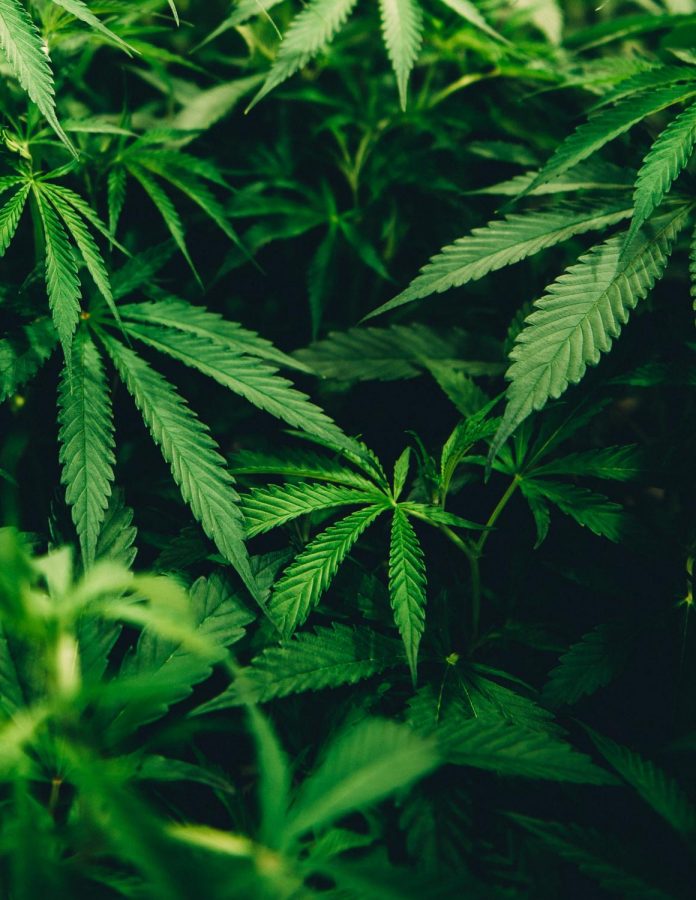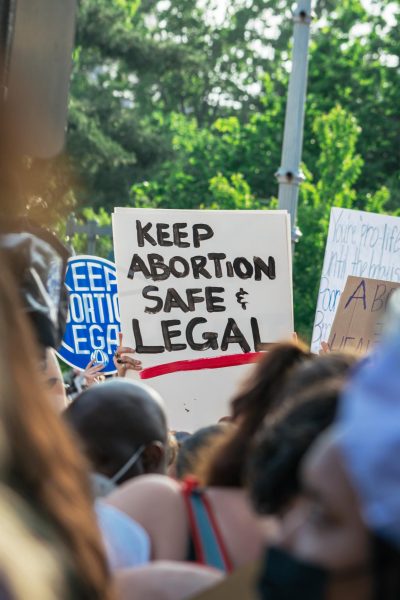Should Marijuana Be Legalized?
March 14, 2021
Over the past few years, states have moved to legalize both medical and recreational marijuana use. In total, 15 have moved to legalize recreational marijuana usage, and 36 have allowed for medicinal usage. However, a debate continues to rage on over whether or not the drug should be legalized at all, and the aftereffects of Nixon’s War on Drugs continue to plague a modern-day argument over the morality of locking away thousands of people for their nonviolent usage of a relatively harmless drug.
Firstly, it’s important to dispel the idea that marijuana is particularly harmful. While marijuana has severely pronounced effects on those most vulnerable, such as pregnant women and teenagers, it has been shown to be less dangerous to your health than smoking tobacco. While marijuana taken through vaporization, dabbing, or edibles can be significantly more dangerous and can impair driving, the long-term effects for a person with a fully developed brain are rare and typically minimal.
Perhaps the most common argument against marijuana legalization is its role as a so-called “gateway drug”. Statistics show that, while marijuana is the most widely used illicit substance in the world, the vast majority of users never move on to other drugs. In fact, the idea of the War on Drugs that alcohol, tobacco, and marijuana are used as gateways to more extreme drugs is in reality the opposite of the truth: because marijuana is the most widely available drug of its type in the world, someone who has used a less available and less popular drug in their lifetime is more likely to have also used marijuana out of convenience.
Evidence that contradicts the “gateway” theory is not hard to find at all either. Assumptions based on faulty data have warped public opinion for decades, and it’s important to confront those studies, as they hurt our ability to stay informed as a population. While discussing the most commonly cited study of the number of children who try marijuana who will become addicted (Anthony et al), many have claimed that it shows that 1 out of 6 will indeed become addicted. This number is only available through manipulation of the data, and, in fact, examinations of the data have shown what is essentially playing with numbers done by organizations over time. Actually, only around 1.1% of marijuana users 12 and older in 2010 went to treatment for the substance. Fewer than ten percent of those who try marijuana ever end up meeting the clinical criteria for dependence on it, compared to 32 percent of tobacco users and 15 percent of alcohol users, both considered much more socially appropriate, not to mention legal.
Although Black Americans aren’t significantly more likely to use or sell drugs, they are significantly more likely to be arrested for them. In addition, when Black people are convicted of drug charges, they generally face longer prison sentences for the same crimes, according to a 2012 report from the US Sentencing Commission. While Nixon didn’t outright intend to be explicitly racist in his War on Drugs, the story of racism in America in the past few decades has been that Black people have been hurt by policies that appear race-neutral, because all people carry all sorts of subconscious biases against minority Americans, and because of disparities in housing and work.
Cannabis has positive effects as well. Medically, marijuana is used to treat diseases such as epilepsy, Alzheimer’s, ALS, or chronic pain. In addition to these, however it’s been shown to help increase lung capacity, shows promise in autism treatment, and can alleviate stress.
In conclusion, while the original ban of marijuana in the United States was reasonable under the assumption that there was a high rate of addiction to a dangerous drug, the reality is just that the drug is neither as dangerous nor as addictive as previously believed. Marijuana should be legalized in the United States on the basis that it is not the drug it is widely believed to be, but one that can have positive effects along with the standard possibilities for negative effects that all legal drugs have.
Works Cited:
Anthony, J.C., Kesller, R.C. and Warner, L.A. (1994). Comparative epidemiology of dependence on tobacco, alcohol, controlled substances and inhalants: Basic findings from the national comorbidity survey. Experimental and Clinical Pharmacology, 23(3), 244-268. Retrieved from: http://psycnet.apa.org/index.cfm?fa=buy.optionToBuy&id=1994-45545-001#c7.
United States, Congress, House, United States Sentencing Commission. 2012 Report to the Congress: Continuing Impact of United States v. Booker on Federal Sentencing. 2012, www.ussc.gov/research/congressional-reports/ 2012-report-congress-continuing-impact-united-states-v-booker-federal-sentencing. Accessed 6 Mar. 2021.












